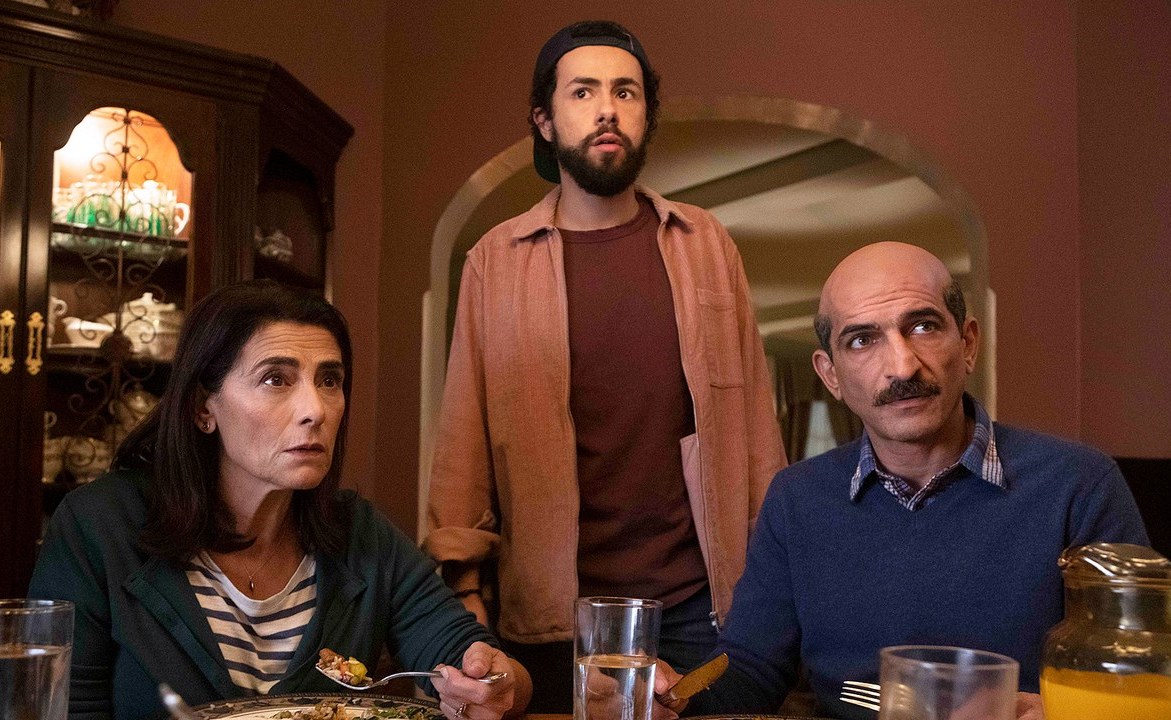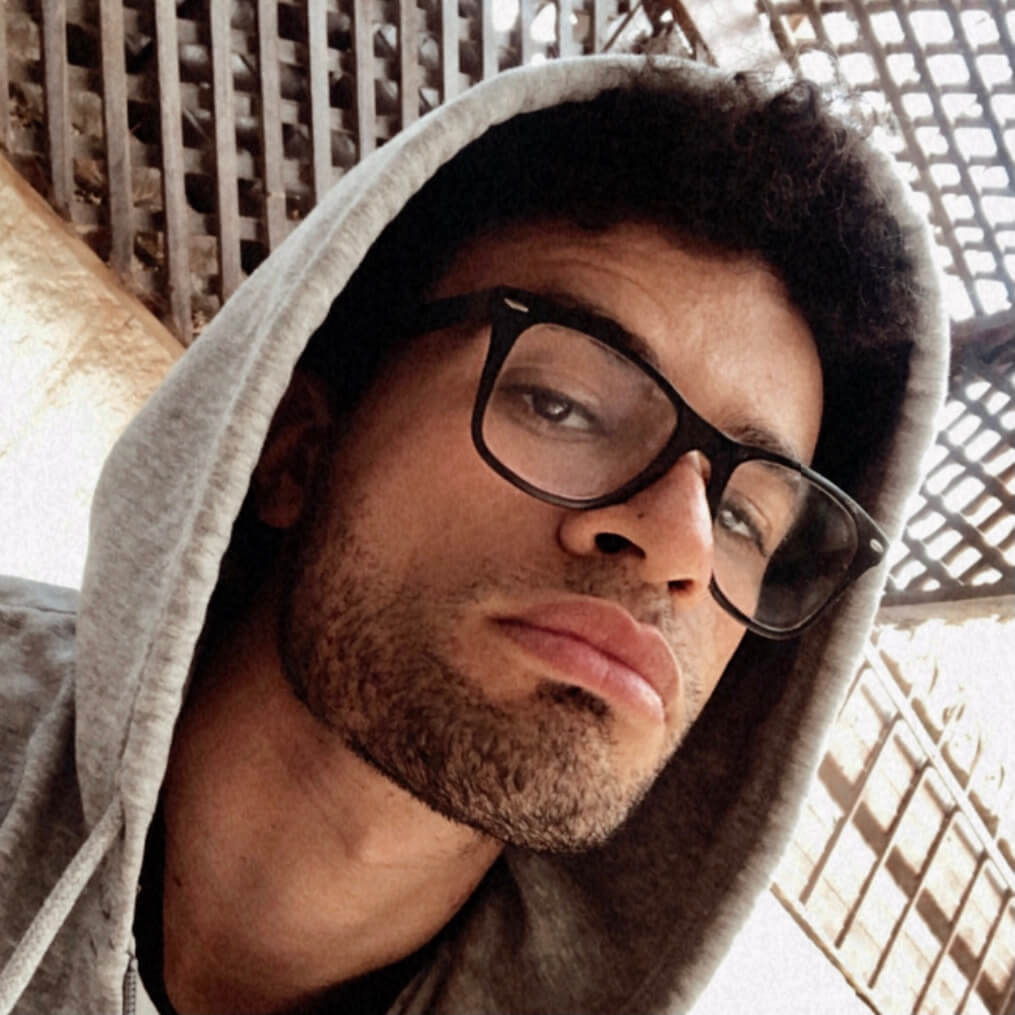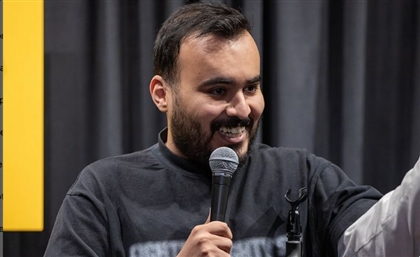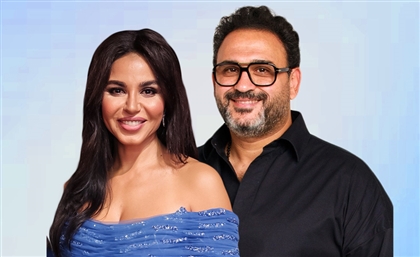Ramy: The US TV Series Subtly Subverting the Stereotypes of the Arab-Muslim Diaspora Experience
Egyptian-American comedian Ramy Youssef's semi-biographical series takes a refreshing approach to life as an Egyptian, Arab and Muslim in the big bad west.

Subverting the coming-of-age genre in a context that has rarely - if ever – been explored on American television, Ramy is a landmark entry into a growing pool of half-hour dramedies, setting itself apart by its tendency to get a bit existential.
Co-created by American-Egyptian comedian Ramy Youssef, the show - which is produced by American entertainment streaming platform, Hulu - is a semi-autobiographical tale based on his own life growing up as a first-generation millennial Muslim in New Jersey. The show follows the titular character (also played by Youssef) and his perpetual journey to find meaning and self-fulfilment within his religion and culture while living with his family, who act as a thorn in his side. Nagging him to be more practical and concise about his future, they hold a concentrated dosage of Egyptian parenting that is oh-so-familiar.
His Egyptian father, Hassan (Amr Waked), and Palestinian-Egyptian mother, Maysa (Hiam Abbas), emigrated to the US from Egypt to grant their kids, Ramy and Dena (May Calamawy), more opportunities. Ramy, however, can't seem to detach and find his footing. But what's interesting is that they're not the ones forcing Ramy to be more faithful. He drives his faith, something that is even often questioned by his family.
As a depiction of the Arab diaspora experience, Ramy quietly revolutionises both the genre and the whole of media on the matter, but not just by route tokenism by being THE new Muslim on the block. It establishes itself as an inventive standout for its genre, using subtle subversions on already explored narratives, from Muslim perspectives or otherwise. It skillfully uses tropes from Egyptian family dynamics and the minutia of the day-to-day that are familiar to those who know, and enlightening to those who don't.
For the most part, western media centred around Muslim culture usually hails its representation as revolutionary, but often lacks depth. Other examples of these programmes, such as American show Master of None or 2017 film The Big Sick, follow the arc of a main protagonist – usually a first-generation immigrant – who hide the fact that they're no longer practicing Islam from their parents as they try and balance conflicting cultural norms and expectations. They pose their own big questions and explore a valid corner of the experience, but the idea of yearning to be faithful, and to keep up with a modern contemporary world that sometimes conflicts with it, is what Ramy does differently.
Ramy constructs its narratives using hyperrealism and surrealism, telling the tales of endearing, personal journeys in the most eloquent, and often morbid, ways. Among season one’s gems is the third episode, titled Strawberries, which exemplifies this structure in a way rarely ever seen on TV. In the episode, we flashback to a scrawny, pubescent, teenage Ramy. The year is 2001, and being a young Muslim teen with a front-row seat to all the hormonal fluctuations that come with it while trying to fit into a predominantly white American surrounding is no easy feat. But this gets cranked up to a whole other level when the events of 9/11 unfold.
Some mild spoilers up ahead.
Teenage Ramy’s only friends are three white boys, who in true teenage fashion, talk about sex and jerking off non-stop. As they walk home from school, they each boast about discovering all the nooks and crannies puberty has to offer. Meanwhile, young Ramy is struggling with the fact that he is still too uncomfortable to explore any of it, but desperately wants to fit in with his friends. So he lies, saying he does it six times a day. His friends are astonished, but do not outwardly doubt it. Fast-forward and it’s 9/11, and news break of the horrific terrorist attack.
 From right to left, young Ramy played by Elisha Henig and his friends
From right to left, young Ramy played by Elisha Henig and his friends
Mayhem is spreading and tensions are taut, especially for Ramy and his family. We see a repeat of the boys’ walk back from school, only this time there’s a tense mist in the air. And then the silence breaks. “Are you a terrorist?” The question takes Ramy aback. He gets jittery and stutters. After his friends give their reasoning, that he's “from the Middle East,” he reassures them that he isn’t, and claims they should know better, since they know him. And in a clever display of consequences, Ramy's six-times claim comes back to bite him.
One of the other boys confronts Ramy on how he's been lying to them about his masturbatory habits. After an argument over Ramy’s honesty, they dare him to go into the woods and jerk off onto a leaf to prove he’s not a terrorist. He heads into the woods, and a surreal, eerie sequence ensues. He whips out a magazine cover featuring a woman, which then changes to a picture of Osama Bin Laden. He fails and his friends ditch him.
The sequence is terrifyingly absurd and the episode brilliantly explores the conflating frustrations that are slowly cracking young Ramy. The events of 9/11 have been told time and time again, but what Ramy allows for is a new point of view, that doesn't fixate on the attack, but instead focuses on the internalised aftermath, which is wrapped up in an inventive twist thanks to Youssef's knack for creating such acute moments.

While Ramy's confrontation with people’s Islamophobia isn’t an overarching theme throughout the whole series, the flashback is still telling as to why he is the man he is in the present day. He's not ashamed of his religion, but approaches any non-Muslim with a preconceived assumption that he needs to conceal certain parts of his faith. It's a sensible assumption when growing up with people's xenophobia, but it backfires horribly on Ramy’s end as he tries to weave his way through his love life. It allows us to peer into his feelings about himself, his faith, and the duality he's faced by his surroundings in the urbanised New Jersey. He compartmentalises his dos and don'ts, and draws strict lines around the latter.
On the other hand, he holds other Muslims (mainly women) at a higher standard; he places their personalities and beliefs in a neat box, and it's met by his surprise when they steer away from his expectations. He does get called out on it by his sister Dena, but the show never builds on how he's trying to alter this faulty perception. While it does recognise it as a fault in a series of romantic entanglements that go hilariously wrong, the show doesn't have Ramy face this as an issue he needs to adjust, which would've allowed for a more growth and character development, but rather insinuates it as part of his overarching struggle.

Ramy Youssef and Rosaline Elbay gallivanting through Moez Street in Cairo
Ramy’s experience may not be one that any Muslim in diaspora can relate to, but it's universal enough for his awkward shenanigans to be relatable. He romanticises his homeland, Egypt, to be a haven that has the solutions to all his troubles, where he can repent and cleanse his soul. He idealises living in a Muslim-majority country as the answer to his frustrations of living in America, only to realise that it’s not true. In the last two episodes of the season, after a sort-of final pitstop on his search for meaning, he decides to travel to Egypt to spend sometime with his paternal family.

 Reda Idris and Ramy Youssef stranded in an Egyptian desert.
Reda Idris and Ramy Youssef stranded in an Egyptian desert.
As expected (at least by Egyptian viewers), the trip falls in line with the grim pattern of the show's characters' hopes tumbling into a free-fall right when they're at the cusp of figuring everything out. Evidently, the trip is a colossal mess. Trying too hard to imbue it with some kid of grand meaning, Ramy clashes with the harsh reality he faces. The visit to Egypt, however, is lacking in terms of how it frames certain characters and how it crams events into a two-episode storyline, while sacrificing some nuance and setup to achieve a specific end goal. For a show about an Egyptian-American idealising their homeland with an intense nostalgic lens, the visit to Egypt is a bit of a let-down.

The show’s not afraid to steer away from Ramy’s perspective to explore the brilliant deuteragonists. Dena, his sister, gets her own episode where she’s reached a dead-end with the double standards of the way her family treats her and Ramy. He gets to gallivant around, no questions asked, while she’s required to be home by 9PM and report her whereabouts at all times. At her breaking point, she lashes out at Ramy for having the freedoms that she doesn't, to which he claims that everything their parents do and say is just pointless mumbo-jumbo. She is apparently illuminated by this rationale and the episode ends with her adoption of a new mindset - to just ignore them.
 Dena Calamawy
Dena Calamawy
A large portion of the episode focuses on Dena’s frustrations with the way her parents treat her, in comparison to how they treat Ramy. It's a topic that can't be ignored in the context of the show, but it falls short by not allowing for Dena’s character to be seen in a different light, beyond these specific struggles. When we do get the chance in a scene where she’s with her best friends, it still revolves around the issue, offering no new insight into who she really is. Despite these character limitations, Calamawy still perfects the role with a performance that carefully weaves her anger with her vulnerability.
Arguably the best episode of the season is the one that delves into the mother, Maysa. The episode follows a day in her life where she’s perpetually confronted with the fact that her kids are all grown and barely have time to spend with her. Her husband is entirely distracted by his job, and, when he’s back home, he devotes his time to resting on the couch and watching TV, leaving no room for her to find any fulfilment in her family life. She entertains the thought of signing up for an aerobics class, only to be shut down by her husband, who tells her that it’ll be full of younger, fitter women, and that she’ll never fit in. She takes his input to heart, internalising her family's brashness, but after an intriguing experience during her first Lyft ride (an American ride-share app), Maysa is inspired to become Lyft driver, in the hope that she’ll meet new people. Given the show’s pattern, the decision, at least initially, provides something of a reality check. The people she meets are either rude, inconsiderate or are in no mood to have a conversation with her, or Maysa ends up blowing it by being a bit too intense. We see the spark slowly fade the more people she meets. But in a case of deus ex machina, she finally meets the one, who fleetingly makes it worthwhile.
 Hiam Abbas
Hiam Abbas
Lo and behold, she picks up a French guy. They share their frustrations with life in America, and Maysa discovers he’s been to Egypt and loved it. They even exchange numbers, just in case he needs another ride. She becomes reinvigorated and swept up in the fantasy, all giddy at the prospect of meeting more people like him. Maysa’s psyche is explored in a more intimate way than perhaps any other character, including Ramy, in this episode. We see her alone, in both moments of despair and joy which are accentuated beautifully by Hiam Abbas’ performance and Palestinian/American director Cherien Dabis’ unique craft of perfecting character-driven stories.
Season one of Ramy is an impressive - and potentially important - milestone in that it deals with its subject matter in ways that have rarely, if ever, been presented on western TV. It's not without its issues, though. In offering such a specific representation of the immigrant Muslim-Arab experience that fixates on the concepts of the homeland and roots, the overriding arc of the series occasionally pushes too much meaning onto them. Like many new shows, Ramy takes a few episodes to find its footing in regards to its visual style and comedic tone, while some episodes struggle to find their focus in terms of where it wants to take certain characters. When it works, however, it absolutely soars.
All photos courtesy of Hulu
- Previous Article Dr.Sisilove or How (Not) To Diffuse A Bomb
- Next Article The Players Fueling Egypt's Fitness Scene
Trending This Week
-
May 13, 2024
-
May 14, 2024
























